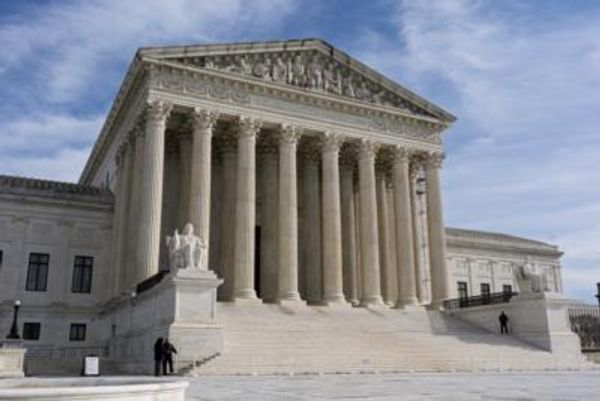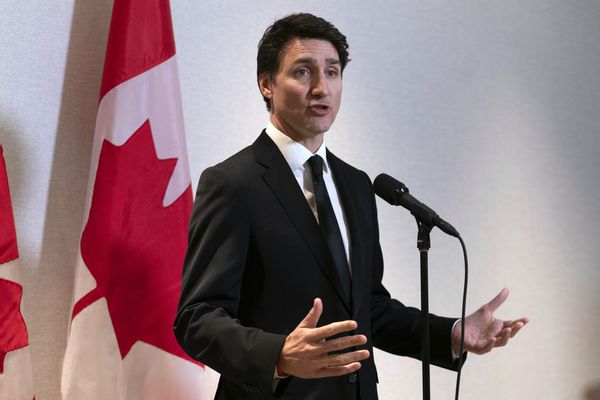
Richard Haass, president of the Council of Foreign Relations, recently published an article entitled “The looming crisis over Taiwan.” It is surprisingly unbalanced in analyzing the cause of the crisis he fears.
The article begins by describing the three U.S.-China communiques which “downgrade[d] ties with Taiwan and maintain[ed] only unofficial relations with the island.” It then refers to the Taiwan Relations Act (TRA), in which the U.S. stated that it would “consider any effort to determine the future of Taiwan by other than peaceful means of grave concern to the United States,” and it laid out the approach Washington would follow to prevent that scenario. Haass describes it as follows:
“The law stated that the U.S. would support Taiwan’s self-defense and maintain the capacity to come to Taiwan’s aid. Left vague, however, was whether it actually would. Taiwan could not assume that it would; the mainland could not assume that it would not. Such ambiguity was meant to dissuade either side from unilateral acts that could trigger a crisis.”
Haass judged the communiques and TRA together as “a winning formula” for all three parties but then expressed his concern with its longevity: “The question is whether time is running out.”
What is the source of the problem in Haass’s view? Reflecting the established mindset of the foreign policy establishment, he says it is Taiwan. “For many years, U.S. policymakers worried that Taiwan would upset the apple cart: not content with the mere trappings of independence, it would opt for the real thing – an unacceptable outcome for the mainland.”

The article makes no mention of the myriad efforts Beijing has made over the years under the TRA to change the status quo by constricting Taiwan’s de facto independence and the international respect it has earned for its “economic success and ... thriving democracy.”
No mention of China bribing small, poor countries to abandon their diplomatic relations with Taiwan;
No mention of Beijing’s frequent economic pressures to bring Taiwan under its control;
No mention of the 1995–96 Taiwan Strait crisis when China fired missiles toward Taiwan;
No mention of China’s relentless diplomatic constraints on Taiwan’s ability to participate freely in international organizations, such as the World Health Organization, the International Civil Aviation Organization, and the Olympics, thereby hurting not only the Taiwanese people but depriving the world of the contributions Taiwan’s highly talented society could provide;
No mention of the absurdly childish punishments imposed on countries to eradicate Taiwan’s name and separate existence from maps, travel destinations, even commercial articles of clothing;
No mention of Beijing’s Orwellian campaign to make Taiwan, a model peaceful, democratic, and law-abiding country, into an international pariah to be shunned and further isolated—this from the world’s greatest violator of international norms in every area of human endeavor;
No mention of China’s 2005 Anti-Secession Law which proclaims its right to use force to seize control of Taiwan not only if it declares its independence as the author fears, but also if it takes too long to accept the rule of the Chinese Communist Party; in other words, continuation of the status quo itself is “an unacceptable outcome for the mainland.”
No mention of China’s repeated military exercises around Taiwan or its repeated warnings that, in Haass’s words, “time is running out.”
Instead of recognizing Beijing’s decades-long campaign of hostility and pressure against Taiwan, the tone of the article is that Taiwan is the trouble-maker and the cause of cross-Strait tensions. It is only late in his article that the author acknowledges that China may have some partial responsibility, but only as a very recent development and only on a par with America as a disruptor of the status quo. As he puts it: “Now, however, stability is also being jeopardized by both China and the U.S.” (my emphasis)
By virtue of his position as CFR head, Haass epitomizes the foreign policy establishment’s perspective on Taiwan as a bit of a nuisance and an impediment to beneficial Western relations with China. While paying respect to Taiwan as a vibrant democracy, that mindset also is predisposed to urge Taipei to somehow come to terms with Beijing, even thought that would inevitably end with the extinguishment of Taiwan’s democratic system.
At some point, foreign policy leaders will have to grasp that the circle cannot be squared. Taiwan, having discarded its old anti-Communist dictatorship, will not accept a Communist dictatorship. And China says it cannot tolerate even a de facto independent Taiwan, especially a democratic entity which shows the Chinese people what is possible under a normal government.
The only thing that will prevent the “looming crisis” Haass foresees is an explicit, public declaration by the United States that it will defend Taiwan against Chinese aggression. War with America is the one alternative that Beijing would find even more unpalatable than leaving Taiwan peacefully democratic and independent. Washington should ensure that China understands its choices and the expert community should help explain it to Chinese leaders.
Joseph A. Bosco is a former China country desk officer in the office of the secretary of defense, fellow at Institute for Taiwan-American Studies, and member of board of advisors at Global Taiwan Institute.
The views expressed in this article are those of the author and do not necessarily reflect the editorial policy of The News Lens.
Read Next: Looking Back at 40 Years of US-Taiwan Ties Under the Taiwan Relations Act
The News Lens has been authorized to repost this article. The piece was first published by Taiwan Insight, the online magazine of the University of Nottingham’s Taiwan Studies Program.
TNL Editor: Nick Aspinwall (@Nick1Aspinwall)
If you enjoyed this article and want to receive more like it in your news feed, please be sure to like our Facebook page below.







